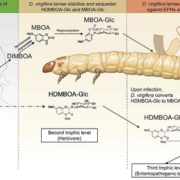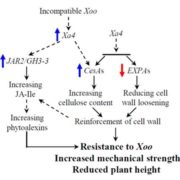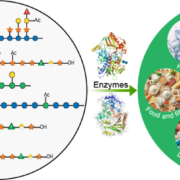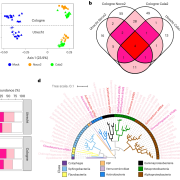Ferns unleashed: Novel insecticidal proteins IPD113 challenge Bt resistance
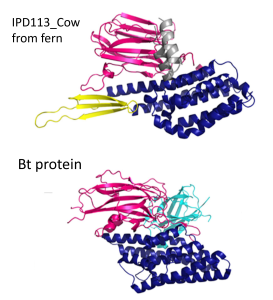 Insect pests pose a significant threat to global crop production, with lepidopteran species like corn earworm and armyworms causing substantial losses. The widespread use of insecticidal proteins from Bacillus thuringiensis (Bt) in crops has been a key strategy to combat these pests. However, the emergence of field-evolved resistance in various pest species raises concerns about the sustainability of Bt crops. This study focuses on the discovery of a new family of insecticidal proteins, IPD113, isolated from fern (Pteris) species. Building on earlier observations that ferns are naturally resistant to insect infestation, the researchers identified IPD113 as having strong activity against lepidopteran pests in artificial diet-based assays and transgenic plants. Interestingly, IPD113s proved successful in eliminating insect colonies that were resistant to popular Bt proteins. The IPD113_Cow, member of the IPD113 family revealed a similar structure to Bt insecticidal proteins. Genomic analyses confirmed that these proteins are encoded by plant genes, challenging the initial hypothesis of horizontal gene transfer from bacteria. The discovery of IPD113 offers a viable path for developing insect-resistant crops with a new mode of action, potentially addressing challenges associated with Bt resistance in agricultural settings. (Summary by Arpita Yadav @arpita_yadav_). Proc. Natl. Acad. Sci. USA 10.1073/pnas.2306177120.
Insect pests pose a significant threat to global crop production, with lepidopteran species like corn earworm and armyworms causing substantial losses. The widespread use of insecticidal proteins from Bacillus thuringiensis (Bt) in crops has been a key strategy to combat these pests. However, the emergence of field-evolved resistance in various pest species raises concerns about the sustainability of Bt crops. This study focuses on the discovery of a new family of insecticidal proteins, IPD113, isolated from fern (Pteris) species. Building on earlier observations that ferns are naturally resistant to insect infestation, the researchers identified IPD113 as having strong activity against lepidopteran pests in artificial diet-based assays and transgenic plants. Interestingly, IPD113s proved successful in eliminating insect colonies that were resistant to popular Bt proteins. The IPD113_Cow, member of the IPD113 family revealed a similar structure to Bt insecticidal proteins. Genomic analyses confirmed that these proteins are encoded by plant genes, challenging the initial hypothesis of horizontal gene transfer from bacteria. The discovery of IPD113 offers a viable path for developing insect-resistant crops with a new mode of action, potentially addressing challenges associated with Bt resistance in agricultural settings. (Summary by Arpita Yadav @arpita_yadav_). Proc. Natl. Acad. Sci. USA 10.1073/pnas.2306177120.



